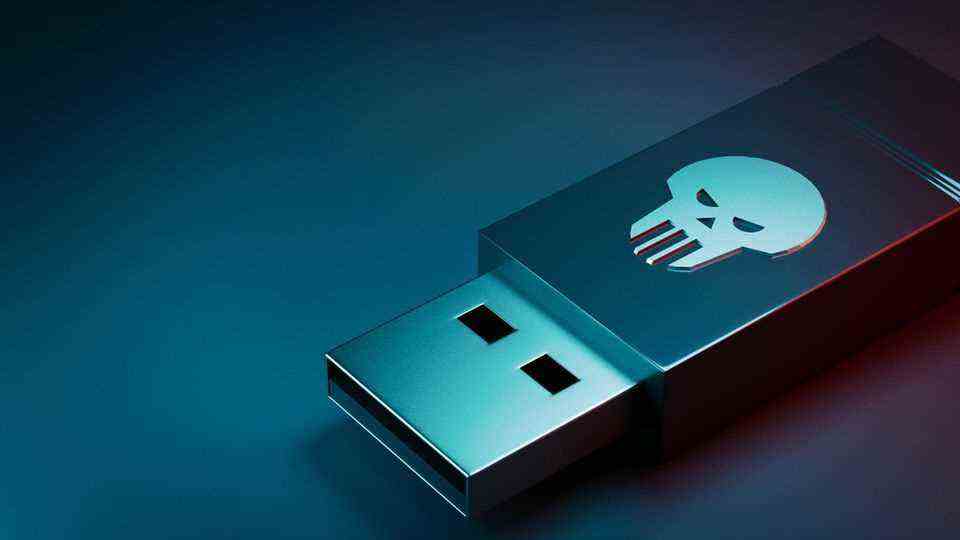Malware, Trojans, adware and other software junk: the Internet is full of them. Nevertheless, more and more antivirus programs are deviating from their core task and mining crypto currencies, for example. Do we still need these programs at all? the star asked.
The antivirus software industry is in transition. By mid-2022, three veterans of the scene will belong to one large company, and there are only rarely really new providers. NortonLifeLock, formerly Symantec, has managed to combine its own security suite Norton 360, the German heavyweight Avira and the British manufacturer Avast under one roof.
The company thus owns a considerable part of the market, which in two out of three cases, i.e. Avira and Norton, is already heading in a strange direction.
In addition to protection against dangers, users are forced to attach ballast such as crypto mining software and sell it as a future-oriented feature. At the same time, customers who use these functions would temporarily load their systems more heavily than viruses could. At this point, at the latest, the question arises: is it art or can it go away?
Crypto money via antivirus software
Andreas Marx, Managing Director of AV Test GmbH, explains to him star: “For a long time there has been hardly any “classic” antivirus software. Most programs contain numerous other security functions, such as a VPN, browser protection or a password manager.” So the idea of the digital full-line supplier continues.
Many users of such software are familiar with the term “crypto currency”, so they offer a simple solution here as well. “That’s where Norton and Avira come in: They make it incredibly easy for users to dig and earn (small) money themselves,” Marx continues, “however, it’s questionable whether it’s even worth it in German-speaking countries, since the Electricity costs are very high.”
Chaos Computer Club Member Carl Fabian Lupke poses in conversation with the star but the crucial question: “There is no reason to install cryptominers from a security perspective. Why do they do it anyway? Attention? Earn from mining?”
Customers pay extra – no matter how
As Lüpke suspects, so it is. According to own Manufacturer’s declaration Norton takes a whopping 15 percent of the money received as commission. Same goes for that too Avira mining program. It is important that both Norton and Avira currently only run this part of the software if it is explicitly requested.
A self-experiment by bleeding computer from mid-2021 shows, however, that you are doing yourself and the hardware a disservice. If the mining is running, the software grabs all system resources, turns up the fans and fully utilizes the graphics card. In 36 hours, however, no money came out of it because the pool, i.e. the union of all “digging” people, had not “mined” anything that could have been shared.
Also at the US magazine TheVerge it went terribly. One night later, with roaring fans and expensive electricity, income of 66 US cents was offset by expenses of the same amount. Minus the 15 percent of the earned coal for Norton, it is a clear negative business in both cases.
Maybe a rescue?
If you consider that Norton 360 is 14.99 euros a year in the best case and Avira is even (still) free of charge, the manufacturer NortonLifeLock naturally has to make sure that it turns into a business in the end. That also explains functions where customers pay extra. Is it perhaps a kind of search for saving measures? Are antivirus programs on the verge of extinction? How important are the core functions?
Andreas Marx has a clear opinion on this: “Antivirus programs are still very important, since we at AV-TEST alone discover, analyze and classify over 450,000 new malicious programs every day. You should also rely on a good protection solution under MacOS and Android , since the basic protection provided by the operating system is still low here.” It’s not enough to move cautiously through the internet, adds Marx. As with driving a car, it is not always the fault of the driver in the event of an accident, i.e. a virus attack on the system.
Lüpke sees it differently: “In my opinion, more secure software and better education are needed. Manufacturers should be (more) liable for the IT security of their products.” He also sees the danger of system infections through no fault of his own. But: “Instead of buying an expensive virus scanner, you should keep your software up to date and include things like the availability of security updates when making a purchase decision.”
In any case, this is not the case with antivirus software
If you put together the results of the discussions and the observations of how the manufacturers’ new ideas work, a sad picture emerges. But even if experts like Lüpke are right when in doubt and antivirus software is often a kind of bandage for defective software, the need or necessity still seems to be there.

But what then counts is trust in the programs and functionality that treats the hardware as gently as possible. The software should neither cost a lot nor attract attention. The free Windows Defender shows that this is possible also in comparison tests for years. However, for-profit solutions are struggling and are currently moving in a direction that can destroy trust and affect the entire industry.



